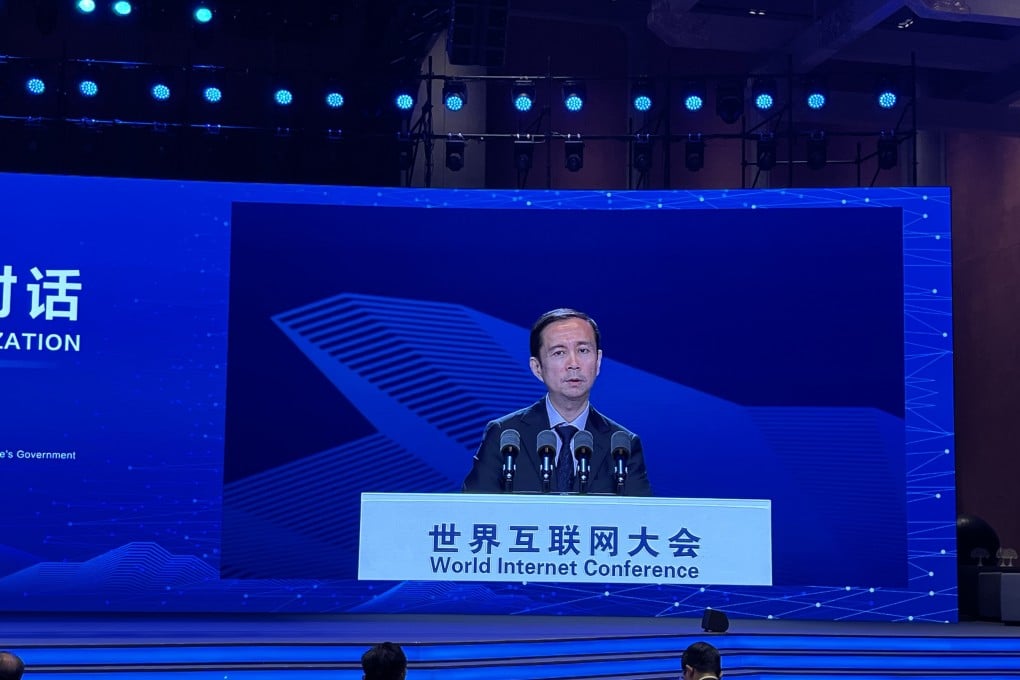Alibaba’s AI development could be stop-and-go, as outgoing CEO highlights regulatory restraint in speech
- AI regulation is as important as developing the technology, said Alibaba’s outgoing CEO Daniel Zhang, who will continue to lead its cloud operations
- The comments align with Beijing’s goal of taming the tech’s erratic nature while keeping pace in the global AI race

“Hitting the accelerator while also … hitting the brakes for security are equally important,” Zhang said at the Nishan Dialogue on Digital Civilisation in Qufu, a city in eastern Shandong province, the birthplace of the ancient Chinese philosopher Confucius. This strategy requires a “cooperative effort from the whole society to pre-empt any possible problems brought upon by the accelerated development of AI technologies”, he added.
The event was organised by the World Internet Conference (WIC), a government-backed annual forum started in China in 2014 to promote Beijing’s governance model for cyberspace. In 2021, the WIC expanded its membership to become an international organisation, although most of its funding still comes from the Chinese government.
Alibaba Cloud is the leading business segment in developing and commercialising AI for the tech giant. It is the largest cloud computing business in China, but maintaining good business relationships with state-owned enterprises and government clients requires maintaining goodwill with Beijing.
The subsidiary is one of six new business groups under a corporate restructuring this year that will see each group run independently and able to seek outside funding. Alibaba Cloud is currently in the process of seeking an initial public offering, to be concluded in the next 12 months, according to the company.